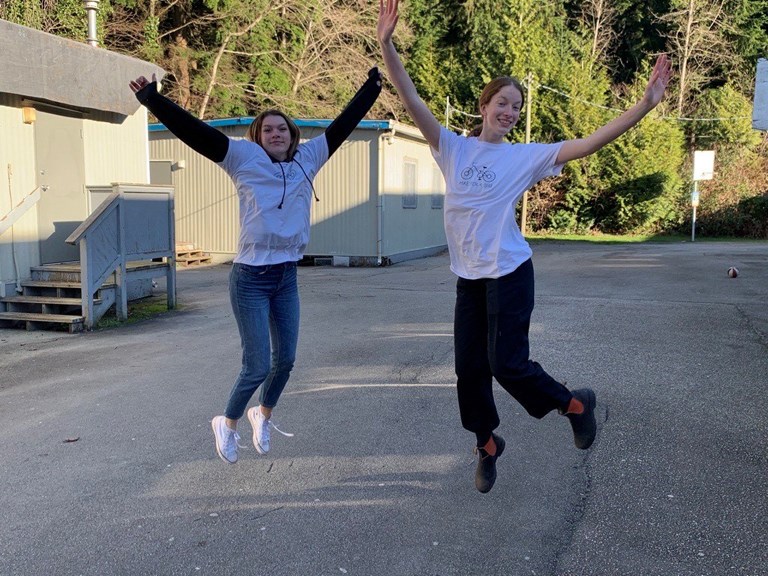With programs like Bike to School Week, I hope that the number of kids cycling to school increases here on the North Shore.
We are trying to make our infrastructure safer to encourage riding to school. But these are developed world problems. I mean at least here nearly everyone has a bike.
In developing parts of the world, like rural Africa, biking to school is only a dream. Two Seycove Secondary students are working to make that dream a reality.
Jordyn Eyton and Sage Cable were taking a social justice class, which explores local and global societal injustices. The course encourages students to decide what actions might help correct these inequities. In December 2020, World Bicycle Relief made a presentation to their class. At that session, Jordan and Sage learned about the connection between poverty and education – specifically how young women in small villages in Africa could simply not get to school without walking a long, long way – in some cases an hour or more both there and back. While inequities abound, the barriers to education for women are much higher than for men.
It’s the old circular story. Due to poverty, the girls can’t afford faster ways to get around, so they can’t realistically attend school. This means they can’t access the education which would improve their chances to reduce their poverty. And, surprise, we are right back where we started. I don’t know about you, but tackling the whole picture regarding poverty and education seems daunting. The complexity is staggering. However, Seycove’s social justice class encourages students to see that removing even just one barrier to progress can have a profound effect.
Eyton and Cable set out to help by raising money for World Bicycle Relief to provide kids who want to go to school with a bike. The organization prioritizes 70 per cent of the bicycles they provide for girls. Eyton and Cable started the Go Fund Me page “Hike for a Bike.” The idea is to crowdfund using hikes and hikers around the North Shore. When you go out for a hike or walk, snap a photo of yourself or your surroundings, then post it on Instagram or Facebook with the hashtag #hikeforabike with a link to the page.
Funds raised go to purchasing special “Buffalo” bikes, designed for easy maintenance and to withstand rough roads. The bikes cost around $200 each. So far, Eyton and Cable have raised enough money to buy enough bikes to help seven village girls in Africa get to school.
Throughout developing regions, women and girls face cultural obstacles that limit their access to quality education. Kudos to Cable and Eyton and their teacher Andrea Yeo for helping girls to break the poverty cycle using the simplest of tools, one we tend to take for granted: the bicycle. It’s working too. On average, girls who get a bike have a 33 per cent reduced time to school and a 28 per cent decrease in absenteeism. They have more time for study and regular chores and don’t feel as intimidated by bullying while walking to school. That’s a good deed from young North Shore women to young women a continent away trying to get to school.
Heather Drugge is a sustainable transportation advocate who has used her bike for transportation for over 20 years. She’s zooming around on an e-bike now, and maybe looking at a jetpack next. [email protected].



